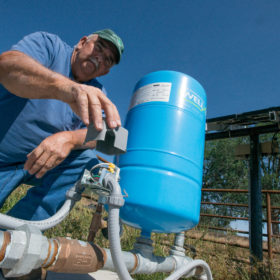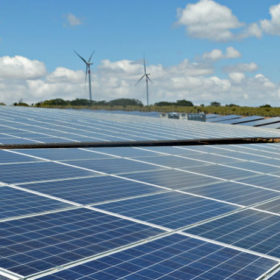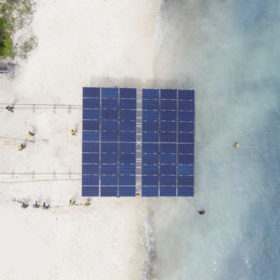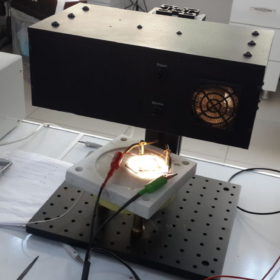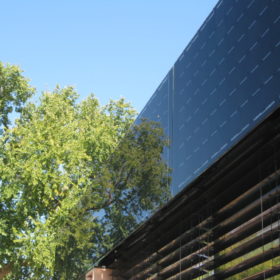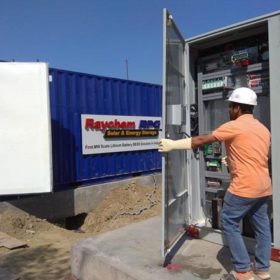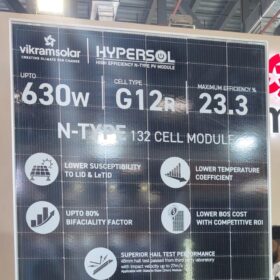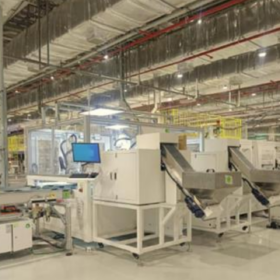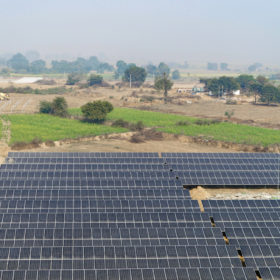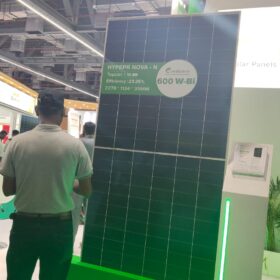A multi-level inverter for solar water pumps
Scientists in India have tested a new inverter topology with a single-phase, induction-motor water pump. The seven-level inverter, with five power semiconductor switches, is said to be particularly efficient at reducing switching losses thanks to a pulse width modulation technique.
USA: Government report says Trump’s solar tariff has accomplished little
The U.S. ITC has released a report highlighting changes in the domestic solar cell and module manufacturing industry, showing that while there has been an increase in domestic module manufacturing, the overall program’s success, relative to the $740 million in tariffs, has created little measurable benefit.
Optimal grid utilization imperative whilst integrating renewable energy
The Solar Energy Corporation of India should amend the 400 MW round-the-clock supply tender to make co-location of solar, wind and storage mandatory in order to ensure optimal utilization of transmission infrastructure, says NSEFI chairman.
The long read: A seaborne alternative to burnt cash
Floating PV has matured quickly, but while the opportunity of solar on the sea may appear immense, there is nothing trivial about the challenges posed by salinity, wind, and waves. However, technical and financial solutions are appearing on the market, giving small island communities a chance to reduce their reliance on polluting diesel.
Mahindra Renewables to sell 3 solar arms to CLP India
Cleansolar Renewable Energy, Divine Solren and Neo Solren—all of which were formed to set up and operate solar plants in Telangana—would be sold for around Rs 340 crore. The transaction is expected to be completed by May 31, 2020.
Assessing the impact of micro-cracks in solar glass
A Turkish research team has analyzed how big changes in temperature can affect absorbance, light transmittance and reflectivity in two types of solar glass. The scientists demonstrated lower efficiency in solar cells and the glass itself were attributable to a large number of micro-cracks and deformations on the glass surface.
Solar projects reprieved as Indian government declares coronavirus a force majeure
Lobby group the National Solar Energy Federation of India says around 4 GW of solar plant capacity is likely to be affected by component shortages after the outbreak of the virus in China.
Raising crops in PV facades
An international research group has analyzed the visual impact of PV facades on buildings which include crop cultivation. Architects, PV specialists and farmers were surveyed and the results showed broad acceptance of such projects.
NTPC invites global bids for 1.2 GW ISTS connected solar projects
The projects—to be established on a build, own, operate basis—will be awarded through e-bidding and a reverse auction with a tariff ceiling of Rs 2.78 per kWh. Bidding closes on March 19.
BHEL wins battery energy storage system order for Delhi discom-TERI pilot
By offering 410 KWh of cumulative battery capacity for a total cost of Rs2.51 crore, the state-owned engineer and manufacturer emerged winner in the auction which saw overwhelming response from both Lithium-ion and advanced lead-acid storage providers.
